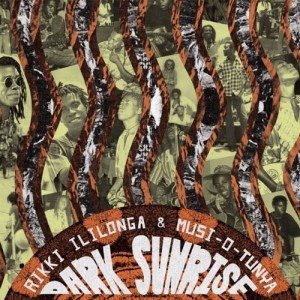 This may continue into next week, but I’ve got CDs here that I had the best intentions of writing about but never made it to somehow, starting with:
This may continue into next week, but I’ve got CDs here that I had the best intentions of writing about but never made it to somehow, starting with:
Bob Dylan: The Witmark Demos: 1962-1964 (Columbia/Legacy): If you want to hear this two disc set as Bob becoming Bob, go for it, but it’s not that neat a narrative. What speaks to me is how unprecious some of these versions are. These were versions cut to demo the songs for prospective cover versions, and during “Let Me Die in My Footsteps,” Dylan breaks it off to say, “You want to put this on? It’s awful long. It’s not that long, but it’s a drag.”
The Stooges: Have Some Fun: Live at Ungano’s (Elektra/Rhino): This live set following the release of Fun House in 1970 has good bootleg sound, which is probably all we can hope for at this point. There’s a second guitarist, but it’s hard to tell in this mix – not that you miss him. The essentials are very present: Scott Asheton’s caveman drumming (so stiff), Ron Asheton’s wah-crazy guitar, and Iggy’s theater of confrontation. It’s not the revelation you hope for, but Have Some Fun confirms the band’s power. And the last 18 minutes get pretty out as Steve Mackay’s sax burns through “1970,” “Fun House” and the final freak out on the title track.
Iggy Pop/James Williamson: Kill City (Alive): Critics have rushed to reappraise this album first released in 1975 as “underrated” and a lost classic, but it doesn’t merit that kind of love. Williamson and Iggy hit a creative jag after Raw Power that resulted in these songs, but where Williamson was concerned, what he found was a way to do a version of Keith Richards. As such, the album’s got a strong Stones vibe, but with the exception of the title track, he didn’t come up with riffs as interesting as Keith’s nor his own on Raw Power. In short, he hit a creative streak when he could produce B-minus/C-plus material at will. The pop-soul production robs Iggy of any danger, even when his lyrics are among the most lowdown he’s written. And these days, it may not be fair but I can’t hear that sax and not think of a Glenn Frey video.
Rikki Ililonga and Musi-o-Tunya: Dark Sunrise (Now Again): This reissue of “Zamrock” from Zambia is engaging on its own as document from a little-explored African music scene, but it also highlights the revolutionary power represented by distortion and psychedelia around the world in the late 1960s and early 1970s. The liner notes include a lengthy interview with Ililonga that’s fascinating reading on its own, particularly as it deals with the scope of AIDS’ devastation in Zambia and the western influence on his music.




